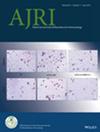Pregnancy and Behçet Syndrome: A Large Retrospective Italian Study
Abstract
Introduction
Behçet syndrome (BS) is a multifactorial disorder with several clinical manifestations that occurs during the childbearing age. The relationship between pregnancy and BS has been previously analysed as the pregnancy immunometabolic reprogramming in case of autoinflammatory and/or autoimmune diseases can influence both the course of the disease and the pregnancy outcomes. We aim to analyse the relationship between BS and pregnancy, investigating: (1) the prevalence and clinical characteristics of disease flares during pregnancy and (2) the pregnancy outcomes in a large cohort of Italian patients with BS.
Methods
This retrospective study was conducted recruiting a cohort of BS patients according to the criteria of the International Study Group for Behçet (ISG), following at the Rheumatology Department of Lucania (San Carlo Hospital, Potenza) from January 2000 to December 2021. We reviewed medical records and collected demographic and clinical data besides pregnancy-related data, in particular: maternal age, disease flares during and after pregnancy, post-partum maternal and neonatal complications (up to 6 months after pregnancy).
Results
We studied 153 pregnancies in 96/117 subjects (21/117 patients did not get pregnant). Three patients showed active disease (oral ulcers) at the time of conception. Disease flares were observed during gestation for 25/153 (16.3%) pregnancies, mainly mucocutaneous (oral and genital ulcers, erythema nodosum) and joint (arthralgia and arthritis) manifestations. A total of 27/153 (17.6%) cases of disease flares were observed after pregnancy, with mucocutaneous (oral and genital ulcers, erythema nodosum) and joint (arthralgia and arthritis) involvement, as well as anterior uveitis. Miscarriages, preterm delivery, pre-eclampsia and eclampsia were observed in 27/153 (17.6%), 19/153 (12.4%), 6/153 (3.9%) and 2/153 (1.3%) pregnancies, respectively. No cases of neonatal complications or death were observed.
Conclusions
The results of the present study underlined that: (a) BS disease clinical symptoms do not appear to worsen during pregnancy and (b) the pregnancy does not appear to be associated with increased gestational complications and adverse maternal-fetal outcomes in case of BS. However, due to the potential adverse events, especially of the vascular involvement, a strong multidisciplinary pregnancy follow-up is recommended.

 求助内容:
求助内容: 应助结果提醒方式:
应助结果提醒方式:


